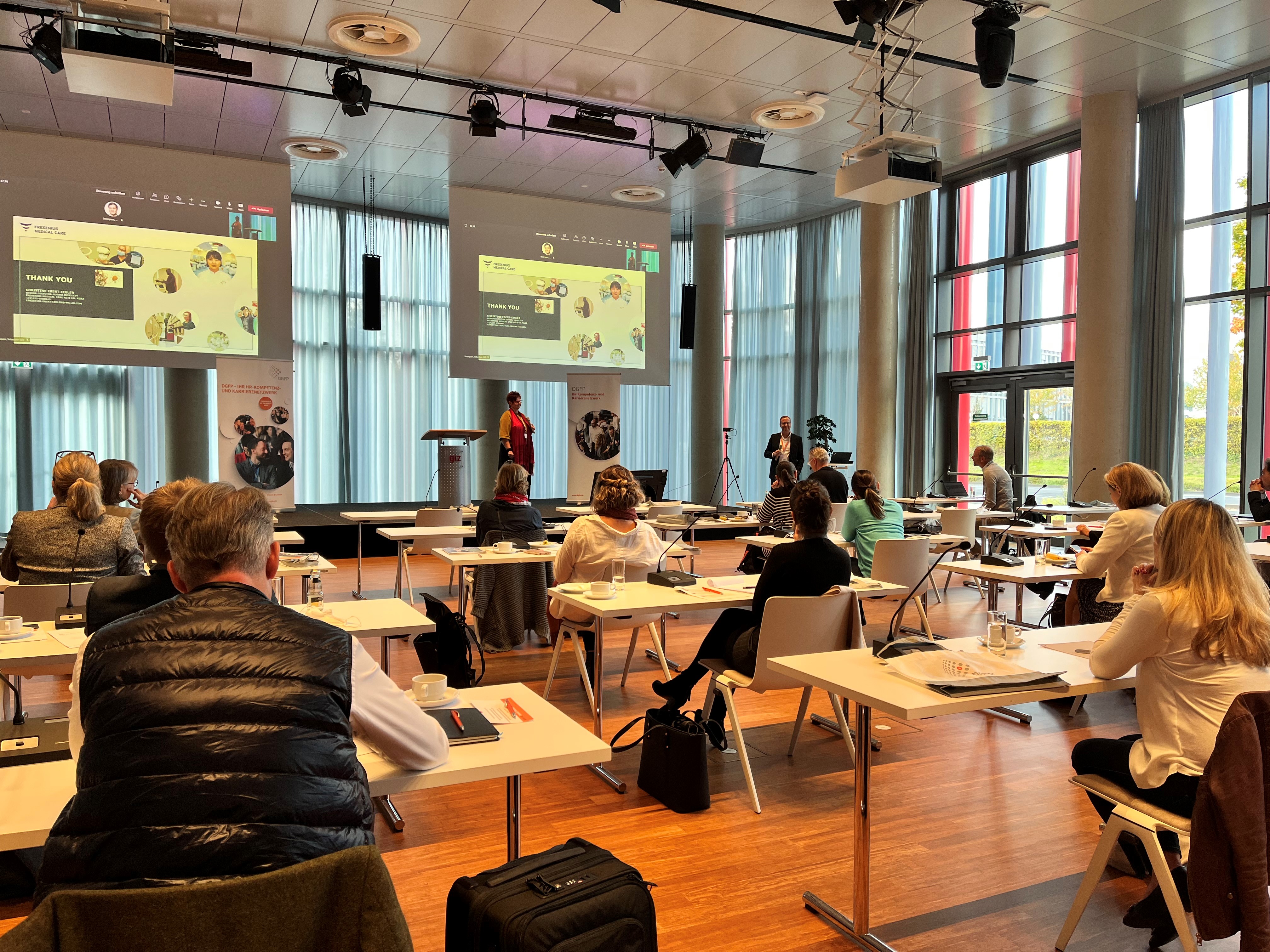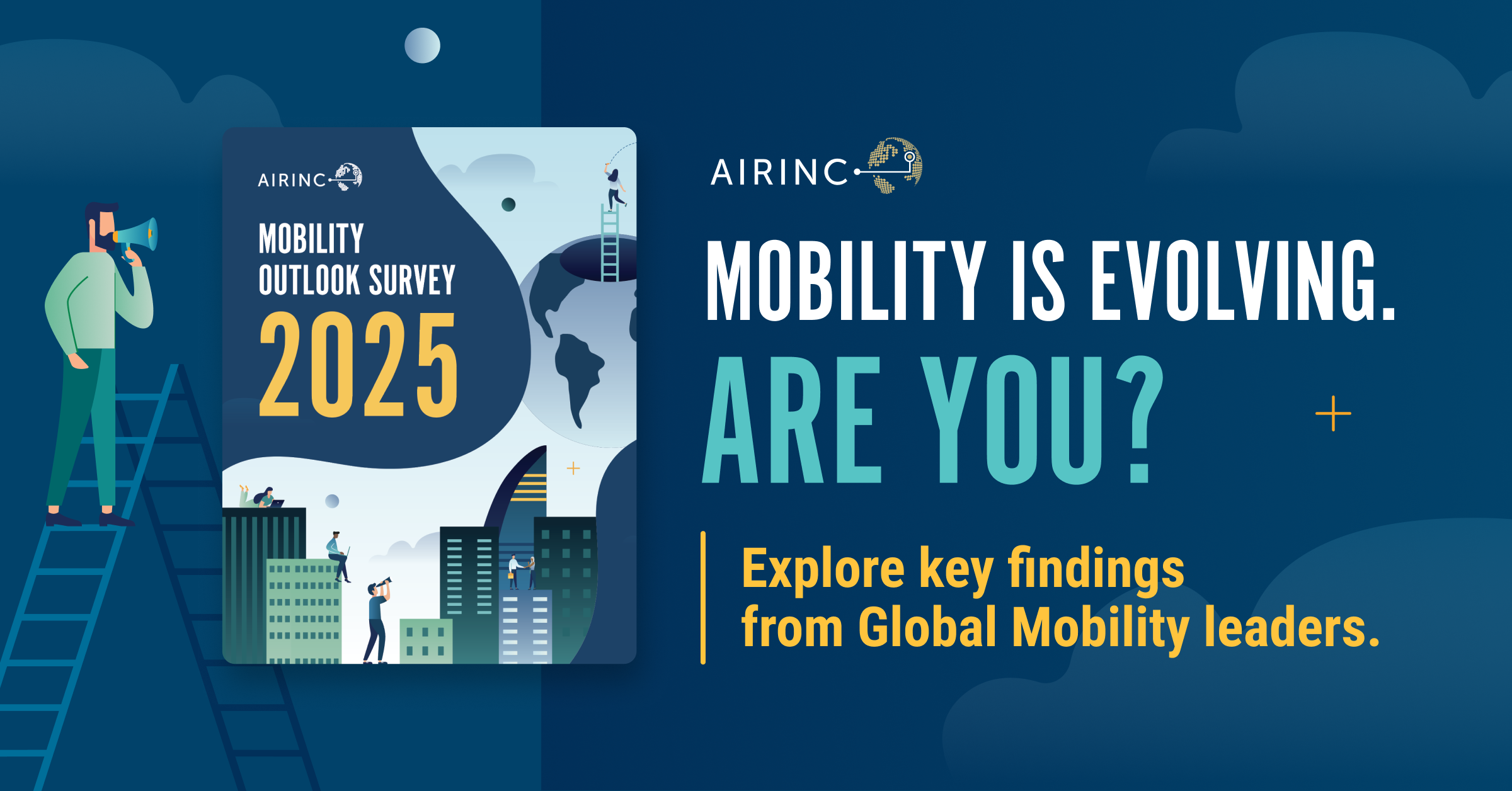What is the latest from Germany?
Last week I had the pleasure of attending and presenting at the Annual Global Mobility Conference by the DGFP, Germany’s largest personnel organisation. While last year’s event was fully virtual, this year’s conference was split into four different half-day modules, with one of them being a face-to-face event, which was hosted at the headquarters of the GIZ in Bonn.
It was great to connect with many familiar faces and meet new ones too: You could feel the buzz of excitement of being able to network face to face again. The DGFP successfully made it a hybrid event after one of the speakers was only able to attend virtually, and his session on transforming mobility policies to fit in with remote work requirements was a good link to the three virtual sessions that followed.
Very much in line with the mobility trends we see from our AIRINC clients, the overriding topic was remote work and cross border mobility in all its shapes and forms. One company presented their in-house tool on travel compliance while others shared their journey on enabling temporary work from abroad. The topic of self-initiated assignments was also covered by two of the speakers, another sign that the mobility world is changing rapidly; and becoming more modern. Another participant shared her company’s tool which involves a chat bot that can tell you if temporary remote work from abroad is possible for a particular employee or not.
Questions about policies, compliance and how to pay remote workers were all covered in the lively conversations after the presentations. Once more, it became clear that mobility and compensation and benefits teams are working more closely together than ever before. Although the focus was primarily on remote work/temporary work from abroad/working from anywhere, we did not forget that there are still some traditional assignments out there: I was able to share the hot-off-the-press results of AIRINC’s Long-Term-Assignment benchmark survey.
Further topics included presentations on what to outsource and what to handle in-house, as well as what technology tools are helpful and necessary for mobility teams’ ever-increasing responsibilities. In a Slido poll in one of the sessions, it was confirmed that the talent function is one of mobility’s most trusted partners in organisations. A trend that AIRINC can confirm, and which is an extremely positive one for the mobility community.
Of course, Covid and the challenges of the pandemic were also topics covered especially when it comes to certain countries. One company shared their insights into and challenges with assignments to China.
In the wider discussion rounds, there were also questions about sustainability in global mobility, and I was able to share some trends from our Sustainability Pulse Survey as well as our Mobility Outlook Survey, which both show that this important topic is here to stay and that not only companies but mobility teams are beginning to do more about it. There is definite, albeit slow progress.
Overall, it was encouraging to see that mobility has been dealing with the challenges of the past two years successfully. And not only that; many GM teams have, in fact, embraced changes such as the varied requests of working from anywhere and have used the opportunity to update their policies accordingly.





%20(20).png)

